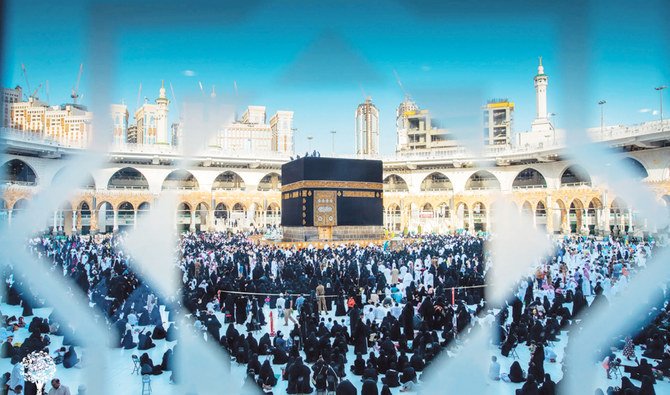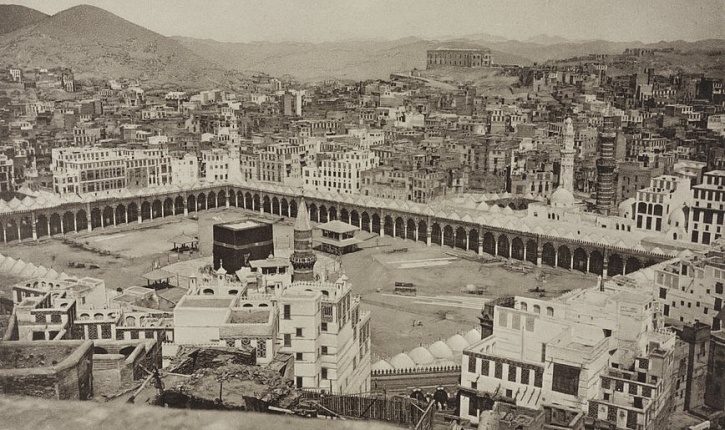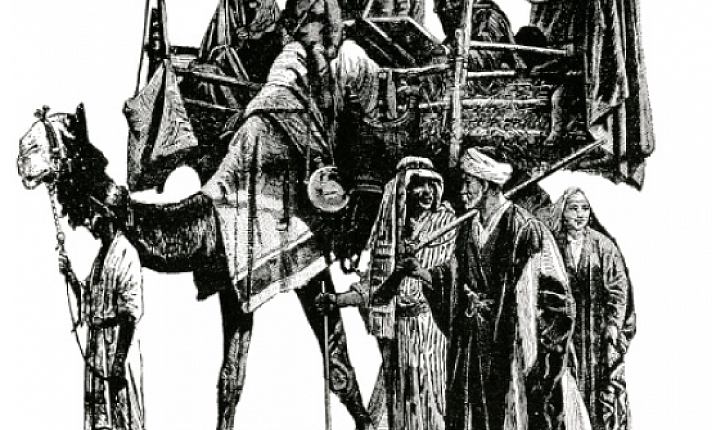Arafat Day
At a time when millions of Muslims are heading to the Mina Valley on the first day of the Hajj, the women of Mecca are heading to the Grand Mosque to honor an ancient tradition that was only recently disrupted due to the COVID-19 pandemic.
Arafat's Day, the holiest day in the Islamic lunar calendar, dedicated to prayer and unity, is a significant event for Muslims around the world.
It is also a day that testifies to a phenomenon that has been practiced for centuries. When millions of pilgrims head to Mount Arafat on the ninth day of Dul-Hiji, the official first day of the Hajj, silence reigns over Mecca, especially the Grand Mosque.
In just a few hours, the space around the Kaaba is filled mainly with women. However, there are quite a few of them. This phenomenon is called " Yaum Al-Kholif”, which comes from the Arabic word meaning “emptiness”.
When the women and children go to the Grand Mosque, the men go five miles east, to the Mina Valley, along with the pilgrims.
Every year, the Makkawi, known throughout the city as "mutawefin", prepare for the Hajj season as soon as Eid Al-Fitr ends, as they wait for pilgrims arriving from Jeddah through their" wukala " or agents.
The women prepare their homes for the reception and accommodation of their guests, who will stay either for a few days or for up to four months, depending on the agreement between the mutavef, the veikil and the pilgrim.
” The relationship between the pilgrims and the Mutawef is strong and has no economic interests, " says Faten Hussein, a Mutawef and journalist specializing in Hajj and Umrah.
These relations are rather regulated by human, religious and spiritual attitudes. This profession for the first generation of Mutavefins was passed down from generation to generation and was considered an honor for those who serve the pilgrims and help them, taking care of their comfort.”
On the eighth day of Dul Hijji, men all over the city — old and young-gather the necessary food, tents and equipment before escorting the pilgrims from the Grand Mosque to Mina, where they will stay for the duration of the hajj, before heading to Mount Arafat after dawn on the ninth, marking Arafat Day.
Then Mutawef had to take the pilgrims to the Grand Mosque, praying along the way.
"The sons of Mutavef, and sometimes even his daughters, walked behind with the female pilgrims. This is done so that the pilgrims stay with the group and do not get lost and are not left behind,” Hussein said.
Until the recent closure of the Grand Mosque due to the pandemic, women often gathered their friends, family members and neighbors, packed food and belongings and headed to the mosque to spend the day in prayer, waiting for the sun to set to break their fast.
According to Islamic tradition, Muslims who do not perform Hajj are recommended to fast on this day, because “it atones for the sins of the previous and coming year.”
After spending the whole day in the mosque dedicated to their prayers and prayers, preparations for Eid begin, and the women go to the nearby bazaars to buy toys for the family's children and sweets for visiting guests.
Arafat's Day, the holiest day in the Islamic lunar calendar, dedicated to prayer and unity, is a significant event for Muslims around the world.
It is also a day that testifies to a phenomenon that has been practiced for centuries. When millions of pilgrims head to Mount Arafat on the ninth day of Dul-Hiji, the official first day of the Hajj, silence reigns over Mecca, especially the Grand Mosque.
In just a few hours, the space around the Kaaba is filled mainly with women. However, there are quite a few of them. This phenomenon is called " Yaum Al-Kholif”, which comes from the Arabic word meaning “emptiness”.
When the women and children go to the Grand Mosque, the men go five miles east, to the Mina Valley, along with the pilgrims.
Every year, the Makkawi, known throughout the city as "mutawefin", prepare for the Hajj season as soon as Eid Al-Fitr ends, as they wait for pilgrims arriving from Jeddah through their" wukala " or agents.
The women prepare their homes for the reception and accommodation of their guests, who will stay either for a few days or for up to four months, depending on the agreement between the mutavef, the veikil and the pilgrim.
” The relationship between the pilgrims and the Mutawef is strong and has no economic interests, " says Faten Hussein, a Mutawef and journalist specializing in Hajj and Umrah.
These relations are rather regulated by human, religious and spiritual attitudes. This profession for the first generation of Mutavefins was passed down from generation to generation and was considered an honor for those who serve the pilgrims and help them, taking care of their comfort.”
On the eighth day of Dul Hijji, men all over the city — old and young-gather the necessary food, tents and equipment before escorting the pilgrims from the Grand Mosque to Mina, where they will stay for the duration of the hajj, before heading to Mount Arafat after dawn on the ninth, marking Arafat Day.
Then Mutawef had to take the pilgrims to the Grand Mosque, praying along the way.
"The sons of Mutavef, and sometimes even his daughters, walked behind with the female pilgrims. This is done so that the pilgrims stay with the group and do not get lost and are not left behind,” Hussein said.
Until the recent closure of the Grand Mosque due to the pandemic, women often gathered their friends, family members and neighbors, packed food and belongings and headed to the mosque to spend the day in prayer, waiting for the sun to set to break their fast.
According to Islamic tradition, Muslims who do not perform Hajj are recommended to fast on this day, because “it atones for the sins of the previous and coming year.”
After spending the whole day in the mosque dedicated to their prayers and prayers, preparations for Eid begin, and the women go to the nearby bazaars to buy toys for the family's children and sweets for visiting guests.


